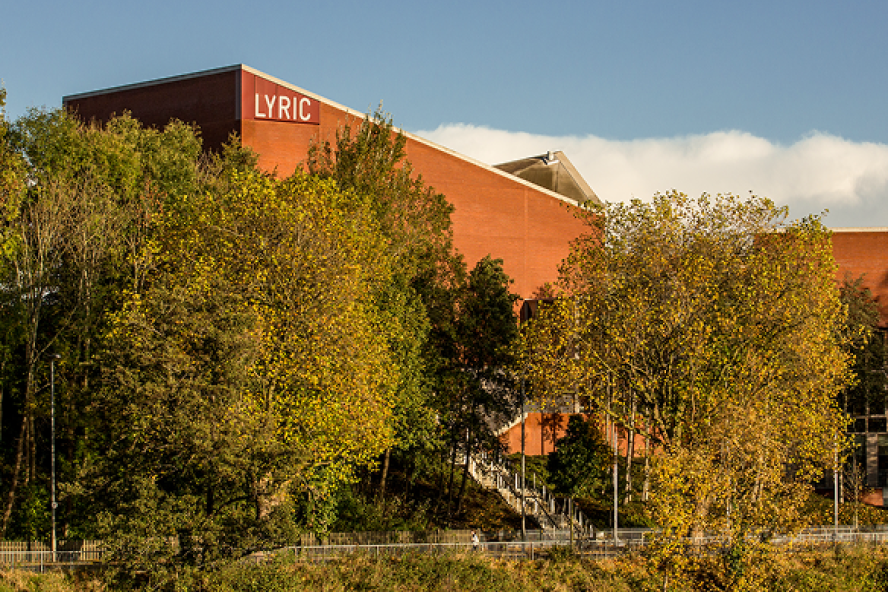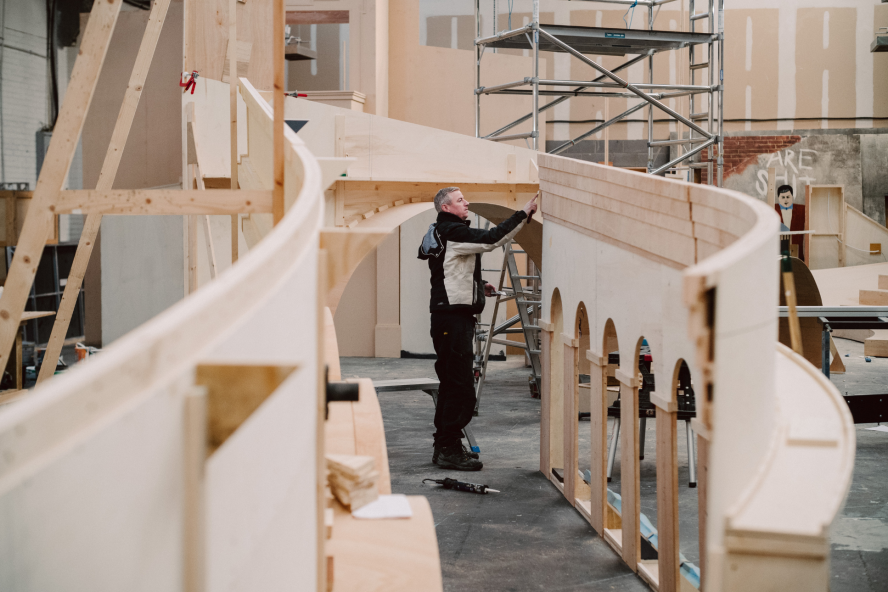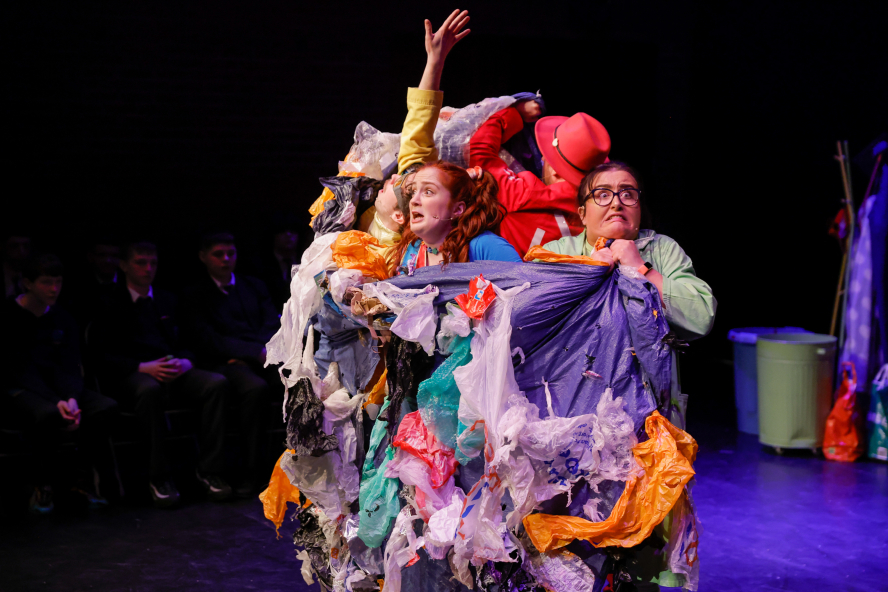Sustainability

We are all beginning to better understand the ways in which our actions impact the environment. At the Lyric we are committed to minimising the adverse environmental effects caused as a result of what we do.
The environmental impact of the theatre is broad – public buildings use energy; audiences, staff and artists have to travel; and the numerous operations that the theatre needs, all add to our carbon footprint. With the support of the Theatre Green Book, we have made a commitment to 'green' our own practices and operations, reduce our impact on the environment and create a more sustainable future.
As we develop our policies across energy management, waste, transport and travel, and procurement, we will keep you updated along the way and hope that you can be part of the journey!
We are keen to ensure that we promote and encourage conversations around sustainability. If you are interested in joining our growing network of arts practitioners across Northern Ireland, the Green Arts Collective, and sharing best practice please get in touch with our Head of Development and Marketing at [email protected].

Our Building
We benefit from being a purpose built modern building, and we were extremely energy efficient when we were built 11+ years ago. We have solar thermal panels on our roof which heat our water, and every space is naturally ventilated with the exception of the two performing spaces.
But there is much more to do. We are making constant improvements to lighting, installing LED lighting in two large spaces in the theatre. Most significantly, we recently installed a new Building Management System, supported by Theatres Trust and the Wolfson Foundation. This has been transformative, giving us greater control over heating, ventilation and energy use, and enabling us to achieve our energy saving targets.

Our Operations
We are making an effort to 'green' our operations - moving to paperless within our Finance and Admin departments; changing our recycling supplier to ensure that our waste is managed more sustainably; We promote a culture of sustainability in the Lyric led by our Green Team.

Scenic Construction
We recently created a new creative post at the Lyric - Scenic Construction Manager - which aims to make the Lyric more resilient for the future and to improve our environmental sustainability practices.
Scenic construction is not only an integral part of the creative process, but it also represents one of the most significant areas of cost and potential for waste. As a full-time producing theatre, we create up to 15 in-house productions every year. Our Scenic Construction team is committed to minimising the adverse environmental effects caused as a result of what we do, reducing the use of raw materials in our sets, and reusing materials where possible.

Schools Eco Project
In the last two years, the Creative Learning Department have toured a production for primary schools – a brand new, devised project highlighting environmental issues affecting life in Northern Ireland.
The short play has visited primary schools across Northern Ireland and aims to raise awareness of littering and plastic pollution. This was supported by the environmental charity Keep Northern Ireland Beautiful and the Department of Agriculture, Environment and Rural Affairs.
P5 – P7 pupils were invited to watch this innovative, engaging piece of physical theatre that offers a fresh new approach to learning about the environment.

Awards & Recognition
We are very proud of our Green credentials, and delighted to have been recognised for our achievements in this area.
- Shortlisted for a Business in the Community Responsible Business Award for Best Climate Action for sustainable theatre making through our Scenic Workshop (Sep 2023)
- Bronze Green Tourism Award (Aug 2022) from Belfast City Council and Visit Belfast
- Shortlisted for a Business in the Community Responsible Business Award for Best Education Partnership for our Eco Schools/ DAERA partnership (May 2022)
- Nominated for Theatre of the Year by The Stage for a number of reasons, including our work in advocating for a creative response to the climate crisis as part of the Green Arts Collective (2021)